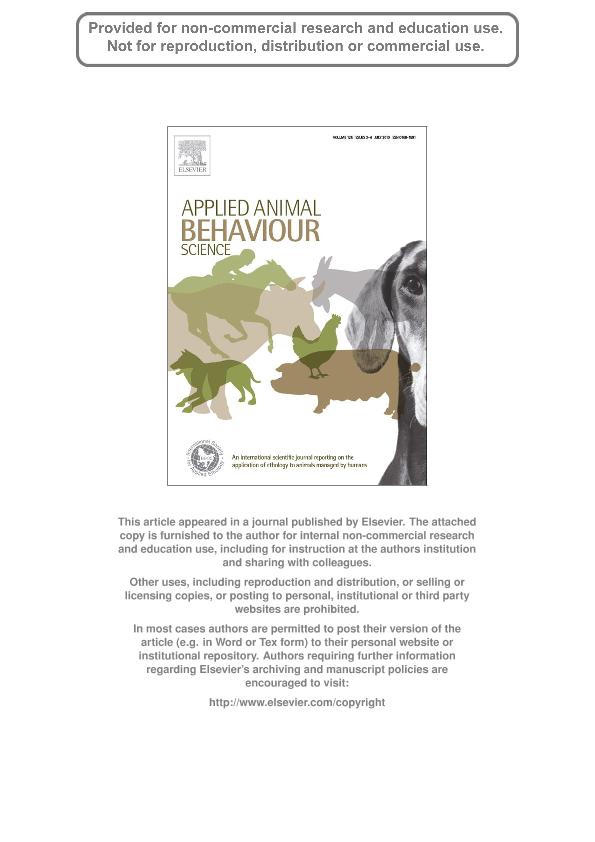Artículo
Behavioural and physiological consequences of capture for shearing of vicuñas in Argentina
Fecha de publicación:
07/2010
Editorial:
Elsevier Science
Revista:
Applied Animal Behaviour Science
ISSN:
0168-1591
Idioma:
Inglés
Tipo de recurso:
Artículo publicado
Clasificación temática:
Resumen
Behavioural, physical and physiological responses of Argentinean vicuñas to capture, handling and shearing were studied for the first time. The research was undertaken in a study area of 2414ha with a mean density of 12-40vicuñas/km 2. Captures were conducted on groups of wild vicuñas that had not received any prior management. Groups were herded into a funnel system that ended in a corral with several internal subdivisions. Three distinct capture methods were compared, according to the method by which the animals were herded into the corral (vehicles system: vehicles only; mixed system: people on foot and vehicles; and Chaku system: people on foot only). Attempts to escape, alarm calls, increased vigilance, vocalizations, and kicking were measured to quantify the stress response. A total of 478 vicuñas were captured between May 2003 and November 2005. Vicuñas captures by mixed system showed alert and active behaviours and vocalized more in the handling corral. The most active animals inside the corrals showed higher respiratory and heart frequency during handling (r=0.44, P<0.05 and r=0.58, P<0.001, respectively) and the heart rate increase was inversely proportional to blood glucose and creatin kinase (CK levels) (r=-0.31, P=0.05 and r=-0.4, P=0.05, respectively). Females captured by people on foot showed greater concentrations of cortisol (174±10.5nmol/L), compared to vicuñas captured by people and vehicles (127.38±12.5nmol/L) (F (1,21)=7.22, P<0.05). Cortisol levels peaked between 90 and 120min post-capture (♀=177.13±7.67nmol/L; ♂=135.11±13.23nmol/L). CK (ln) increased significantly according to time spent in captivity. The system that caused the fewest stress responses in vicuñas was capture by people on foot.
Palabras clave:
CAPTURE
,
HANDLING
,
STRESS
,
VICUÑAS
,
WILD CAMELIDS
Archivos asociados
Licencia
Identificadores
Colecciones
Articulos(SEDE CENTRAL)
Articulos de SEDE CENTRAL
Articulos de SEDE CENTRAL
Citación
Arzamendia, Yanina; Bonacic, Cristian; Vila, Bibiana Leonor; Behavioural and physiological consequences of capture for shearing of vicuñas in Argentina; Elsevier Science; Applied Animal Behaviour Science; 125; 3-4; 7-2010; 163-170
Compartir
Altmétricas




